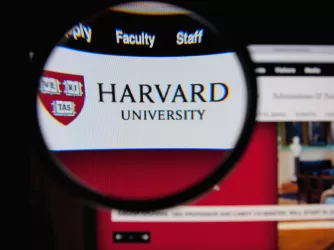Table of Contents
Speech Code of the Month: Cheyney University of Pennsylvania

FIRE announces its Speech Code of the Month for November 2016: Cheyney University of Pennsylvania.
According to a document on Cheyney’s website entitled “Cyber Stalking and Bullying Information,”
Students should be aware that they can be held accountable for posting and sending inappropriate, uncivil, harassing, and threatening content on the Internet (Facebook, Twitter, e-mail, IM, texting, YouTube, etc.). Any act that is unbecoming of a CU student to include cyber bullying and cyber stalking is considered a violation of the Student Code of Conduct and the CU Student Handbook. Depending on the severity of the incident, students can also be suspended, expelled, and/or arrested for such acts.
This policy impermissibly restricts students’ free speech rights in two serious ways. First, it threatens discipline for any “inappropriate” or “uncivil” communications, including on social media and in private communications such as instant messages and texts. These are dangerously broad terms that include a great deal of constitutionally protected speech. We may not prohibit speech simply because it subjectively offends another person’s sensibilities. As the Supreme Court of the United States wrote in Cohen v. California (1971), “one man’s vulgarity is another’s lyric.”
What one person finds inappropriate, another may find hilarious. What one person finds uncivil, another may find an inspiring statement of protest. As one judge said in striking down a university’s civility requirement, “mandating civility could deprive speakers of the tools they most need to connect emotionally with their audience, to move their audience to share their passion.” If every tweet or Facebook posting that someone, somewhere, finds inappropriate or uncivil is grounds for discipline, students have very few free speech rights at all.
The policy also states broadly that “any act that is unbecoming of a CU student” violates the student conduct code and is grounds for discipline up to, and including, expulsion. This is an extraordinary provision, one that gives the university near-total latitude to dispatch with students whose expression makes them an inconvenience to the institution.
As a public university bound by the First Amendment, Cheyney cannot place these types of broad restrictions on its students’ expressive rights. For this reason, it is our November 2016 Speech Code of the Month.
If you believe that your college’s or university’s policy should be a Speech Code of the Month, please email speechcodes@thefire.org with a link to the policy and a brief description of why you think attention should be drawn to this code. If you are a current college student or faculty member interested in free speech, consider joining the FIRE Student Network, a coalition of college faculty members and students dedicated to advancing individual liberties on their campuses.
Recent Articles
FIRE’s award-winning Newsdesk covers the free speech news you need to stay informed.

Revoking Harvard’s tax-exempt status will threaten all nonprofits

Grandpa’s advice for the new wave of American censors

FIRE POLL: Only 1/4 of Americans support deporting foreigners for pro-Palestinian views
